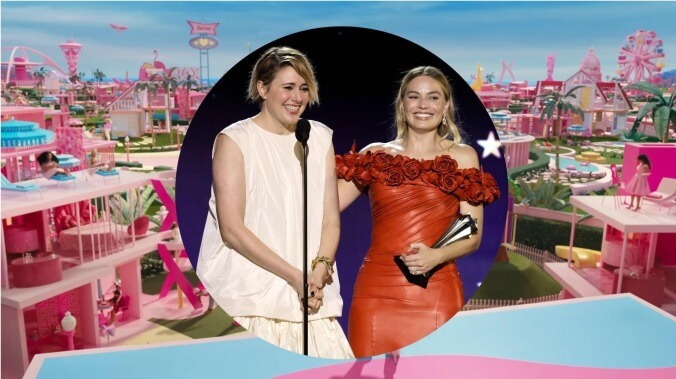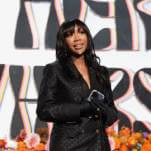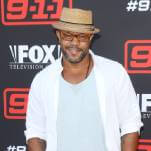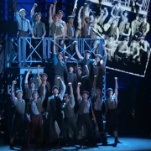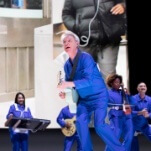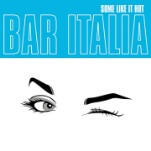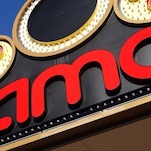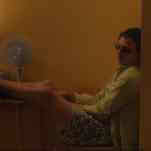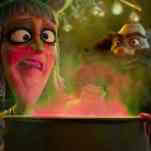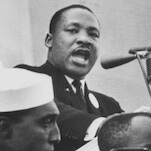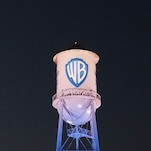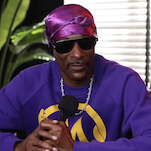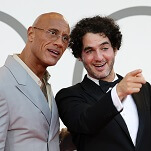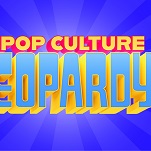Greta Gerwig and Margot Robbie Screenshot: Warner Bros. Pictures/YouTube; Kevin Winter/Getty Images
The road to hell is paved with discourse, and no one can discourse better (or just more) than film fans. Most years around awards season, an outrage narrative will arise regarding a particular scandal or snub, one where the tenor of the discourse begins to eclipse the actual subject of the discourse. Such is the case in the 2024 Oscars race, which left Margot Robbie and Greta Gerwig out of the running for Best Actress and Best Director, respectively. In the wake of the nomination announcement, there was an outcry from Barbie’s legion of fans—and an equal and opposite reaction from Barbie’s haters, a discourse that overwhelmed the cinema section of the Internet. In other words, Barbie continues to be a cultural behemoth, one that encompasses so much of the tension in the current entertainment landscape: identity politics and the false underdog phenomenon.
Part of the Oscars backlash is due to Barbie’s messaging, which managed to make “Stereotypical Barbie” (a fashion doll for children, let’s not forget) into an icon of personhood for women everywhere. Barbie’s feminism may be clunky and overt, but it resonated—as evidenced by America Ferrera’s Best Supporting Actress nomination on the strength of her “women” monologue. Gosling’s Best Supporting Actor nomination only exacerbated the issue, creating a vague sense of life imitating art: men’s work is always valued over women, a very symptom of the patriarchy that infected Ken in the film.
Barbie’s most ardent defenders seem to conflate their own personal politics with the reception of the movie, meaning their defenses become overblown, sometimes to a dangerous degree. For example, Los Angeles Times columnist Mary McNamara lamented Gerwig and Robbie’s snubs proved the Academy missed Barbie’s point. In an excerpt that subsequently went viral, she wrote, “If only Barbie had done a little time as a sex worker. Or barely survived becoming the next victim in a mass murder plot. Or stood accused of shoving Ken out of the Dream House’s top window.”
Problematically, much of the Oscar criticism like McNamara’s elides the work of other women in film. The glib reference to “becoming the next victim in a mass murder plot” is an egregious reduction of the story of Mollie Kyle, the central figure of an overlooked American tragedy that became Killers Of The Flower Moon. Lily Gladstone, who played Mollie, is the first-ever Native American nominated in the Best Actress category. Similarly, the mention of shoving Ken out of a window references Anatomy Of A Fall, which earned a Best Director nod for Justine Triet, whose nomination has largely been overshadowed by the Gerwig snub.
If the Barbie snubs are a case of life imitating art, so too is the discourse defending Barbie. Much of it reflects an overly simplistic, individualistic, myopic version of feminism that underlies the film’s message. Ferrera has observed that “there are a lot of people who need” the kind of “Feminism 101” that Barbie is selling, and that’s fair enough. But the movie and its passionate stans appear to be digging their heels into a political moment that’s already passed—see onetime presidential hopeful Hillary Clinton tweeting to reassure Gerwig and Robbie that they are “Kenough.” In her column, McNamara concludes, “As history has proved time and again, assuming a woman is going to be a shoo-in for anything (even the actress category) is never a good idea because to succeed, women have to defy all manner of expectations while also meeting every one.”
Barbie has succeeded by almost any other metric
The thing is, Robbie and Gerwig have succeeded, by almost every possible measure except those two individual categories. Robbie is nominated for Best Picture for being the producer who facilitated the most successful film of the year, solidifying her place as one of Hollywood’s biggest power players offscreen just as much as she is in front of the camera. Gerwig, meanwhile, was nominated alongside Noah Baumbach for Best Adapted Screenplay, her fourth nomination in six years. She was previously nominated in the Best Director category for Lady Bird, part of the rare cohort to earn that nomination for a solo debut film and one of only eight women in history to be recognized in the category. Gerwig is also the only director ever whose first three solo-directed films have been nominated for Best Picture.
Though they missed out on nominations in some highly competitive categories, Robbie and Gerwig’s work has been acknowledged—and that’s on top of the piles and piles of money they made from the film’s smash success. Barbie is a cinematic unicorn, a big-budget comedy with near-universal critical acclaim that also managed to attract awards attention. Rarely has a blockbuster managed to score so many Oscar nominations, especially in the 21st century. Yet somehow the idea has emerged that these two women have been unfairly overlooked, despite the fact that we’ve all been looking at nothing but Barbie for months on end.
“This is called commercial backlash,” Steven Spielberg said after Jaws earned a Best Picture nomination but missed Best Director, a clip which resurfaced in the wake of Tuesday’s nomination announcements. “When a film makes a lot of money, people resent it. Everybody loves a winner. But nobody loves a winner.” Maybe that’s true in Barbie’s case. There’s always a degree of backlash, some of it mean-spirited, to things that are popular. But lately there’s been a rise in the rabid defense of popular culture, which doesn’t really need the defense, seeing as how it’s already popular.
That’s the false underdog phenomenon, wherein someone or something that’s already undeniably on top is treated as though they’ve been marginalized. Stan culture has exacerbated the issue—see: the cult of Taylor Swift—but it’s become increasingly relevant in cinema discourse when populist thinking insists on putting Marvel movies in conversation with Oscar hopefuls. Being omitted from Oscars categories doesn’t make Margot Robbie and Greta Gerwig any less successful. On the flip side, acting as if those two snubs erase the many successes they have enjoyed is reductive to Barbie’s massive ascension. The Academy Awards are always a political rat race. Missing a couple nods isn’t, this time, an attack on womanhood or an underdog getting shut out. Nevertheless, Barbie will undoubtedly persist.
